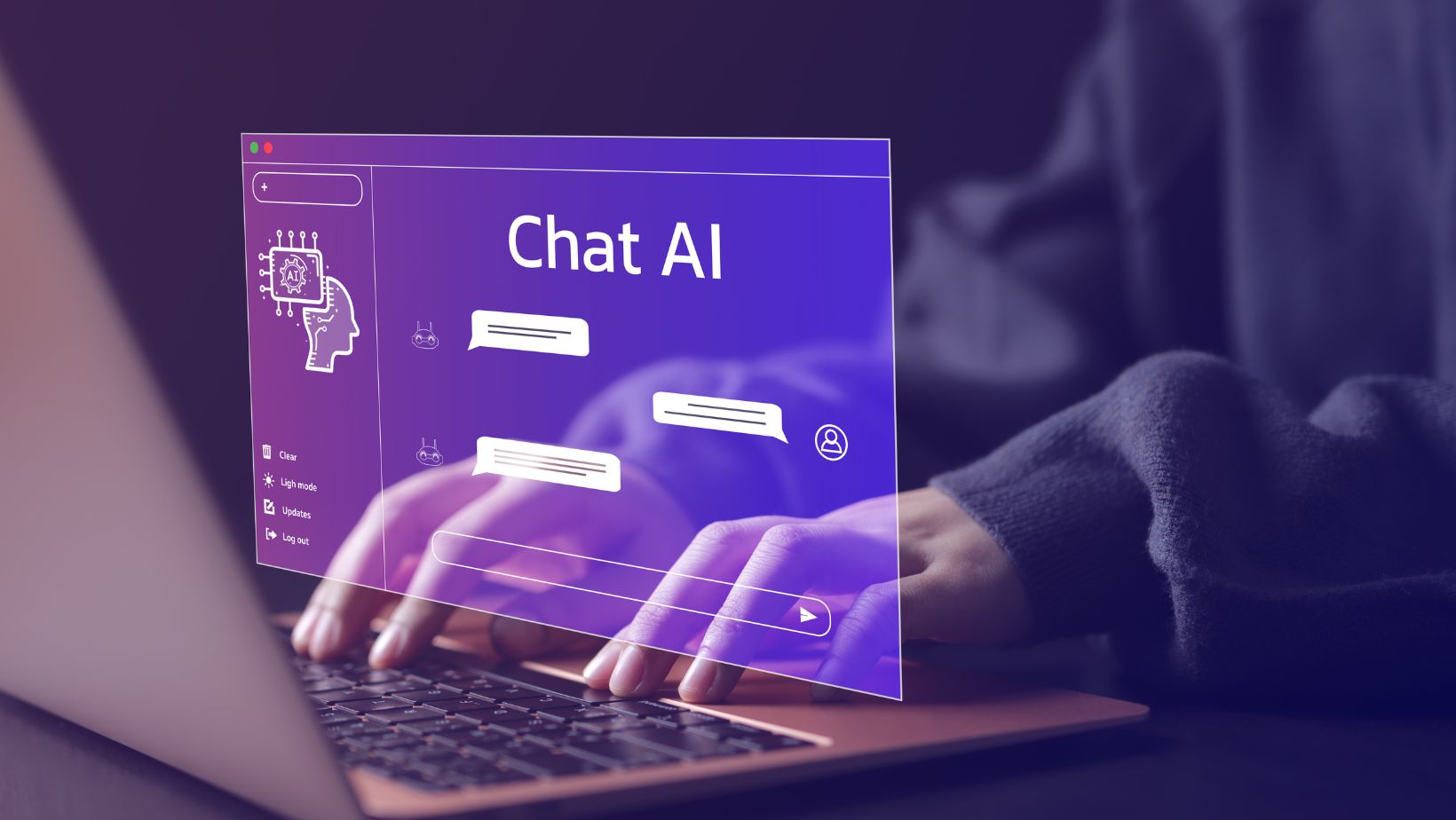Key Takeaways
- AI is revolutionizing the college experience by offering personalized learning tools that cater to individual strengths and weaknesses.
- Enhanced time management solutions, such as smart planners and reminders, help students prioritize academic tasks and reduce stress.
- AI-driven writing assistants and study aids improve the quality of academic work and enhance learning efficiency through interactive and adaptive resources.
- Ethical concerns around data privacy and accessibility must be considered as AI tools are integrated into educational settings.
- Future trends in AI include personalized curricula, predictive analytics for student success, and increased collaboration, all aimed at enriching the learning environment.
As college life becomes increasingly demanding, students are turning to innovative solutions to stay ahead. Artificial intelligence is emerging as a game-changer, offering tools that can enhance productivity and streamline study habits. From personalized learning experiences to efficient time management, AI is transforming the way students approach their education.
Imagine having a virtual study partner that adapts to individual learning styles or a smart planner that optimizes schedules. These technologies not only make academic life easier but also prepare students for a future where AI will play a crucial role in various industries. Embracing AI can empower students to maximize their potential and achieve their goals with confidence.
AI For College Students
AI increasingly transforms the academic landscape for college students. Tools powered by AI offer personalized learning experiences that cater to individual strengths and weaknesses. These tools assess performance data, enabling customized study plans that align with students’ learning styles.
AI applications assist with time management by organizing tasks, setting reminders, and creating schedules. Such features help students prioritize academic responsibilities and deadlines, reducing stress. AI-powered chatbots provide immediate support, answering queries related to course materials or administrative processes.
In addition, AI tools enhance research capabilities. Students can leverage AI algorithms to find relevant information quickly, improving the efficiency of literature reviews. These tools analyze vast amounts of data, presenting insights in a digestible format.
Furthermore, AI facilitates collaboration among students. Platforms utilizing AI can curate group study sessions and foster networking opportunities. By connecting students with similar interests, these systems encourage effective peer learning.
AI also prepares students for a future intertwined with technology. Familiarity with these tools enhances their skill sets and job readiness, reflecting industry demands. Adopting AI in academic pursuits empowers students to navigate complex challenges and maximize their potential.
Benefits Of AI In Higher Education
 AI significantly enhances the educational landscape for college students, providing numerous advantages that optimize learning and academic performance.
AI significantly enhances the educational landscape for college students, providing numerous advantages that optimize learning and academic performance.
Enhanced Learning Experiences
AI technologies create enhanced learning experiences by offering adaptive learning platforms. These platforms analyze student interactions and knowledge gaps, adjusting lessons in real-time to match individual learning styles. Virtual simulations and interactive tools allow students to engage deeply with complex subjects, fostering better comprehension. AI-driven applications also facilitate multimedia content delivery through a tool like an educational video maker, ensuring that materials resonate with diverse student preferences. Furthermore, learning analytics provide educators with insights into student progress, enabling data-driven instruction and more effective interventions.
Personalized Study Support
AI delivers personalized study support through intelligent tutoring systems that assess students’ strengths and weaknesses. These systems offer tailored resources, quizzes, and practice tests based on performance, reinforcing key concepts. Chatbots and virtual assistants respond to academic inquiries instantly, guiding students through complex topics and enhancing understanding. AI tools can create customized study schedules that adapt to each student’s pace, ensuring balanced workloads and focused revision. By leveraging AI, students receive targeted feedback that accelerates their academic growth, making study time more efficient and effective.
Popular AI Tools For College Students
AI tools significantly enhance academic experiences for college students. Various applications cater to writing, studying, and overall productivity.
Writing Assistants
Writing assistants streamline the writing process for college students. These tools offer real-time grammar checks, style suggestions, and plagiarism detection.
- Grammarly: Provides grammar checks and style improvements, aiding in clearer writing.
- QuillBot: Offers paraphrasing and summarization features, enhancing sentence variety and comprehension.
- ProWritingAid: Analyzes text for readability, overused words, and style consistency, ensuring polished submissions.
Incorporating these writing assistants helps students produce higher-quality academic work while saving time.
Study Aids
Study aids powered by AI optimize learning techniques for better retention.
- Quizlet: Generates interactive flashcards and quizzes, reinforcing memory through active recall.
- Anki: Utilizes spaced repetition algorithms, promoting long-term memory retention effectively.
- Khan Academy: Offers personalized learning experiences, providing tailored resources and instructional videos based on progress.
Using study aids encourages efficient learning habits, helping students grasp complex topics more thoroughly.
Challenges And Considerations
The adoption of AI in education brings several challenges and considerations that college students must navigate. These challenges primarily revolve around ethical implications and accessibility issues.
Ethical Implications
AI’s integration raises ethical concerns regarding data privacy and security. Students’ personal information, academic performance, and interactions with AI tools may be collected and analyzed, potentially leading to breaches of confidentiality. Transparency in data usage must be maintained to ensure students understand how their information is utilized. Additionally, reliance on AI technologies can inadvertently contribute to academic dishonesty. Students might be tempted to misuse AI assistance for assignments, jeopardizing the integrity of their work. Cultivating a balanced approach that respects both educational integrity and technological support is vital.
Accessibility Issues
AI tools may not be universally accessible to all students due to variations in technology access. Students from low-income backgrounds might face challenges in obtaining devices or reliable internet connections, limiting their opportunities to fully utilize AI resources. Moreover, AI algorithms can exhibit biases, resulting in unequal access to personalized educational experiences. Institutions must prioritize inclusivity by implementing AI solutions that address diverse needs and ensuring that all students benefit equally from these transformative technologies.
Future Trends In AI For College Students
 Emerging trends in AI are set to reshape the college experience further. Institutions are integrating advanced AI systems to create immersive learning environments that cater to diverse student needs.
Emerging trends in AI are set to reshape the college experience further. Institutions are integrating advanced AI systems to create immersive learning environments that cater to diverse student needs.
- Personalized Learning Environments: AI’s ability to analyze data allows for the development of tailored curricula. Curricula can adjust based on individual progress, learning styles, and preferences, ensuring that every student receives a unique educational experience.
- AI-Enhanced Career Services: AI tools will provide personalized career guidance. Students can expect algorithms to analyze their skills and interests, aligning them with potential career paths and opportunities in real-time.
- Predictive Analytics for Student Success: Predictive analytics will play a significant role in identifying students at risk of falling behind. Institutions can proactively intervene with support services, mentoring, and resources to enhance student retention rates.
- AI in Assessment and Grading: AI systems are becoming more sophisticated at evaluating student performance. These systems can provide instant feedback on assignments, encouraging a more adaptive learning approach.
- Integration with Virtual Reality (VR): Combining AI with VR can create interactive learning experiences. Students can engage in simulated environments that enhance understanding and retention of complex concepts.
- Increased Collaboration through AI Platforms: AI will enhance peer-to-peer collaboration tools. Innovations may streamline group projects, facilitating better communication, resource sharing, and project management.
- Ongoing Ethical Considerations: As AI technologies grow, discussions surrounding ethical implications will intensify. Institutions must commit to ensuring transparency, fairness, and equity in AI implementation while prioritizing data privacy and security.
These trends highlight the robust potential of AI to transform higher education. By leveraging these technologies responsibly, colleges can create enriched, effective learning ecosystems that adapt to student needs and prepare them for future challenges.
Innovative Tools for Students
AI is reshaping the landscape of higher education, offering college students innovative tools to enhance their learning experiences. By integrating AI into their study routines, students can optimize their productivity and personalize their academic journeys. These advancements not only prepare them for future careers but also foster a more efficient and engaging learning environment.
As institutions continue to embrace AI technologies, the focus on inclusivity and ethical considerations will be paramount. Students must navigate these challenges while leveraging AI’s potential to unlock new opportunities. The future of education is bright with AI at the forefront, empowering students to achieve their academic goals and thrive in an ever-evolving job market.





